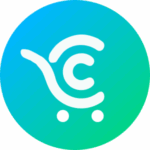In the healthcare industry, training and development are critical to ensuring that healthcare professionals stay current with industry standards and best practices. Healthcare training platforms, such as Learning Management Systems (LMS), are quickly becoming the go-to solution for many organizations. But how do these platforms compare to traditional healthcare training methods? Let’s explore the differences between Healthcare LMS vs traditional training and determine which approach is best suited for modern healthcare education.
The Rise of Healthcare LMS in Training and Development
Learning Management Systems (LMS) are digital platforms that enable organizations to deliver, track, and manage educational content. When it comes to healthcare training, these systems are becoming an essential tool for providing up-to-date and relevant training to healthcare professionals. Online medical training platforms powered by an LMS offer a centralized and scalable way to ensure that healthcare workers have access to the most current knowledge and skills needed to succeed.
What is a Healthcare LMS?
A Healthcare LMS is a dedicated platform designed to manage, track, and deliver training courses for healthcare professionals. The platform allows trainers to provide medical training content in an interactive and engaging format. These platforms offer a range of benefits including personalized learning paths, compliance tracking, and easy access to training materials.
Benefits of Healthcare LMS
Healthcare LMS platforms offer several key advantages that traditional healthcare training methods cannot match:
- Scalability: Online medical training through LMS platforms can be scaled to accommodate any number of learners, from small teams to large healthcare organizations.
- Flexibility: Learners can access training content at their convenience, whether it’s through on-demand videos, interactive simulations, or quizzes.
- Compliance Tracking: LMS platforms offer built-in tools to help healthcare organizations meet industry compliance standards by tracking employee progress and certification statuses.
- Real-Time Feedback: Through assessments and quizzes, healthcare LMS platforms offer real-time feedback, helping learners understand their progress.

















